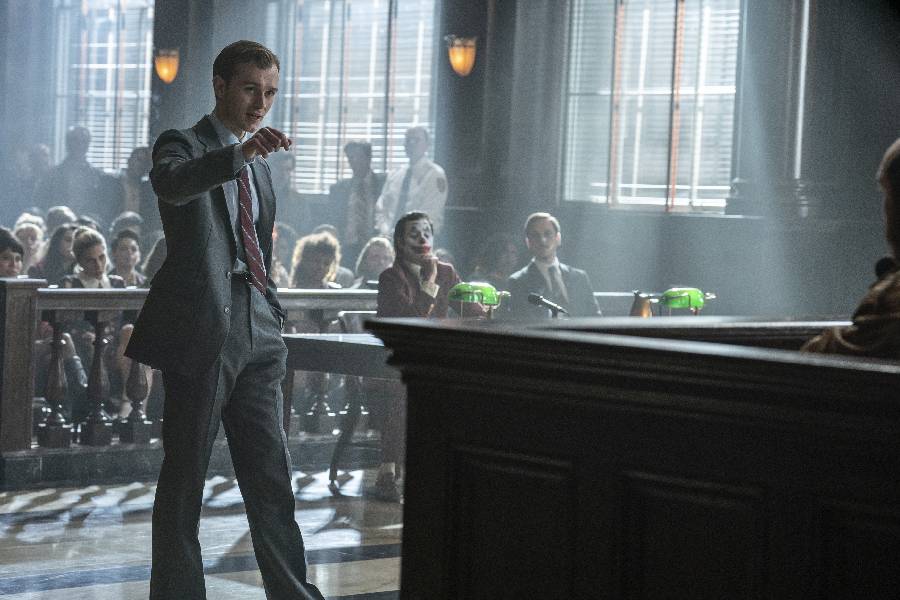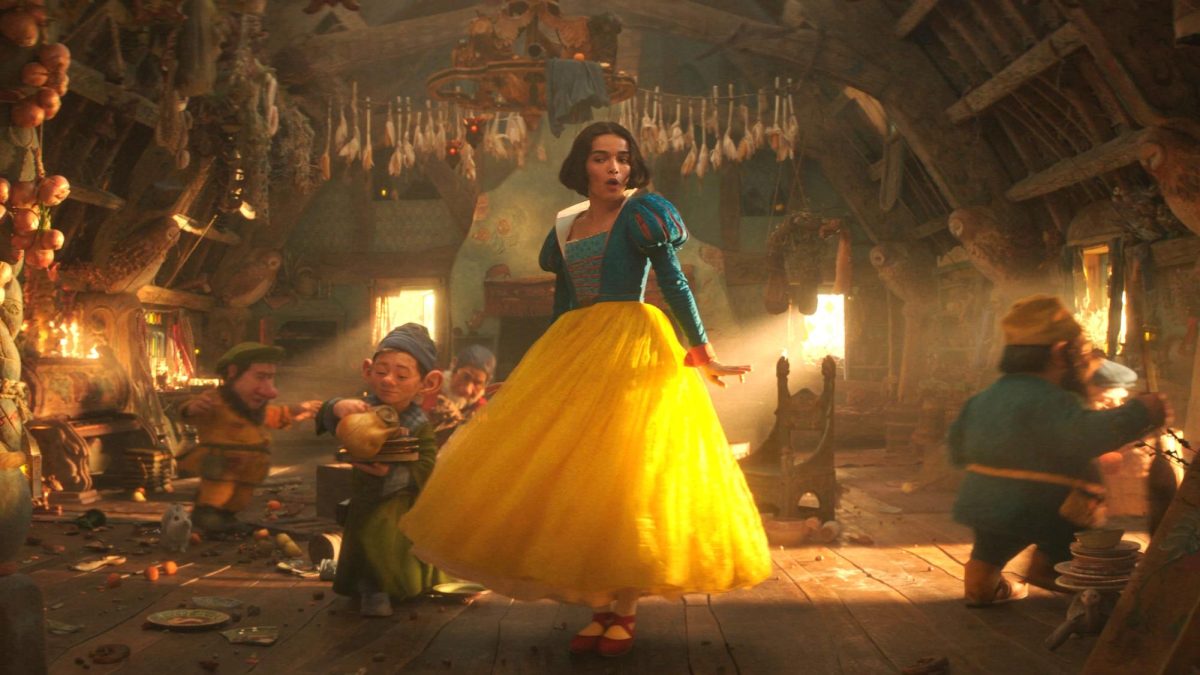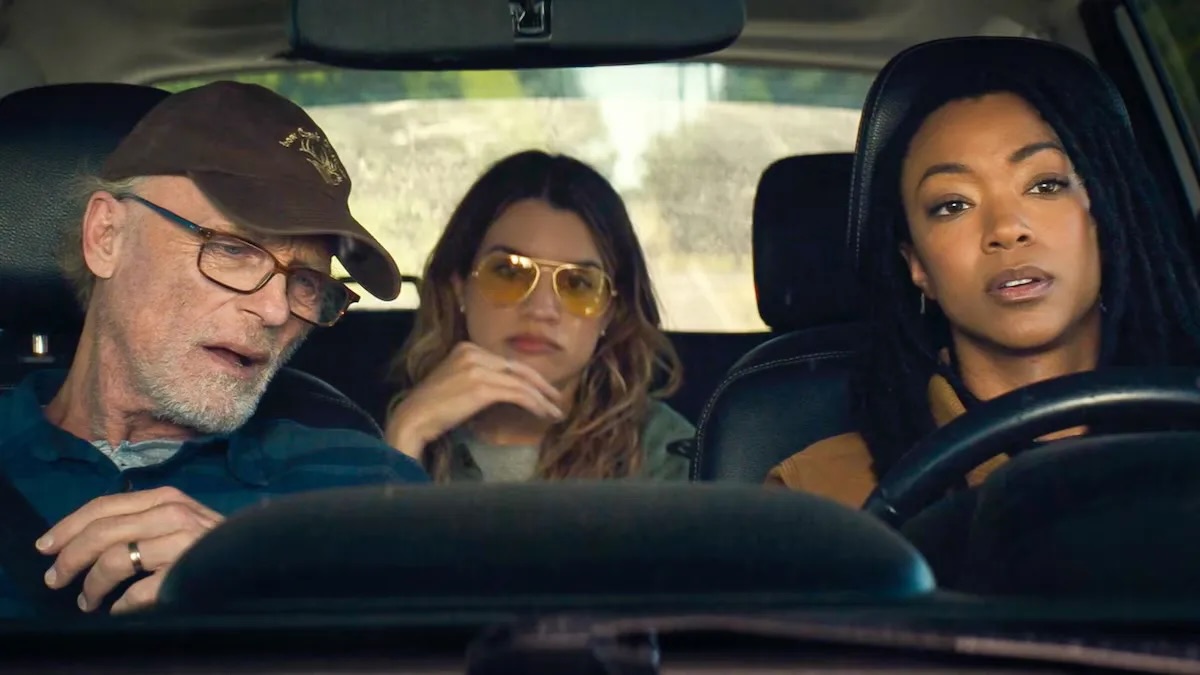If “Joker: Folie à Deux” could be described in one word, there is only one that comes to mind: confused. Between the excruciatingly slow pace of the plot that doesn’t seem to progress outside of the characters, the bizarre writing choices all over the script and the tonally compromised musical numbers that do more narrative harm than good, every element of this movie goes against itself.
The audience witnesses an artistic clash, each element of the production trying to make itself heard over the others. In the end, viewers are forced to watch the potential promise of the sequel crash and burn.
Starting off on a more positive note, the cinematography of the film is nothing short of breathtaking. Directed by Todd Phillips, it’s apparent that his craft hasn’t missed a beat. Every element of each frame is top-notch, from the lighting to the visual effects. The dark, foreboding, choking atmosphere of Gotham and its underbelly is perfectly contrasted with the glowing, upbeat musical numbers within the mind of Joaquin Phoenix’s Joker. Despite the fact that the musical numbers tend to derail the pacing of the film, their inclusion can almost be justified solely for their visual splendor.
The lighting captures what every character is feeling very accurately. Moments of terror and heartbreak that are quite common throughout the film can come right before a bright flash or ray of sunlight, illustrating the effect that Lady Gaga’s Harley Quinn has on the Joker. This lighting switch also worked when showing the effect Joker has had on Gotham’s society, just in reverse.
The highly anticipated duet between Phoenix and Gaga was at the core of the promotion for “Joker: Folie à Deux.” The finished result did not live up to the expectations, but was still decent. Their performances in isolation are solid, with Phoenix holding the same mentally conflicted, nuanced take on the Joker that earned him the Oscar for “Joker” (2019), exhibiting great range through Joker’s attempt to keep his character’s guise going.
Gaga’s performance is fine but admittedly nothing special. Unlike her previous role in “A Star Is Born,” Gaga was left underdeveloped as a whole playing Harley Quinn. Her underutilization was apparent, with most of her dialogue being in the form of song.
Outside of song, the writing for every character feels clunky and lagging. Joker and Harley Quinn’s interactions are short and lack any sort of exploration into their feelings. It is simply Harley Quinn feeding into the Joker’s desire to be loved over and over again without Joker ever noticing it. This leads to their relationship being rushed and ultimately weak by the end of the film.
It is understood that Joker likes Harley Quinn because she’s crazy and acts on her impulses, but he never goes deeper into why he feels attracted to this, especially considering his turn toward abandoning the Joker persona as the film progresses. Harley Quinn does not know the turmoil within Joker’s decision to leave his fame and seek redemption. Critical points of their dynamic are never brought up, and are instead replaced by dance numbers within the Joker’s mind. With them being the center of the film, the overall project suffers from the clear underdevelopment of their relationship.
Tonal whiplash entirely encompasses this film due to the inclusion of the musical element, already a controversial choice from Phillips. The tone is compromised from the start because Phillips simply cannot figure out whether he wants to lean into the musical component of the film or leave it out entirely. As a result, the dramatic tension within the already stale plot is undermined. Important character and plot relevant conversations between the two, that require them to express their feelings over words, are scrapped for just another song.
Throughout the movie, Phoenix and Gaga break out in song at a moment’s notice and their dream sequences occur just as sporadically. Important moments throughout the plot, like Harley Quinn’s pregnancy and her decision to leave Joker at the end of the film, are ruined by Gaga breaking into song for no reason. Audience investment is shattered because it just looks and sounds ridiculous for characters to tonally flip on a dime. The execution is borderline satirical.
“Joker: Folie à Deux” was without a doubt the most anticipated movie of the season, purely because of the success of its predecessor. Audiences cared about the Joker and his journey, as well as his descent into madness and the impact he had on Gotham as a whole. Phillips had a chance to continue his exploration into the Joker’s rise, but instead created a half-baked musical concept with unexplored core relationships and a poorly-paced story. All viewers are left with is a potentially outstanding project that uses its fantastic cinematography as a crutch, leaving hints of a complex story scattered throughout the script.





















